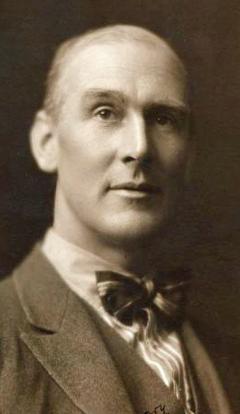Clive Carey facts for kids
Quick facts for kids
Clive Carey
|
|
|---|---|

Carey in 1928
|
|
| Born | 1883 Sible Hedingham, United Kingdom
|
| Died | 1968 |
| Resting place | Holy Trinity, Church Road, Claygate, Surrey, KT10 0JP |
| Education | Sherborne School, King's College, Cambridge, Clare College, Royal College of Music |
Francis Clive Savill Carey (born May 30, 1883 – died April 30, 1968), known as Clive Carey, was a talented English musician. He was a baritone singer, a teacher, a composer, and an opera producer. He also loved collecting folk songs. He was honored with the CBE award.
Contents
Clive Carey's Life and Music
Early Life and Education
Clive Carey was born in 1883 in Sible Hedingham, England. He loved music from a young age. He sang in the famous Choir of King's College, Cambridge. Later, he went to Sherborne School. In 1901, he became an Organ Scholar at Clare College.
He then studied at the Royal College of Music (RCM). There, he learned composition from Sir Charles Villiers Stanford. He also studied singing. He continued his singing lessons in Paris and Nice.
First Performances and Folk Songs
Clive Carey gave his first London concert in 1907. People were very impressed with his singing. The Times newspaper said he had a "baritone voice of wide compass and attractive quality." They also noted his confidence as a young singer.
In 1907, he played Papageno in Mozart's The Magic Flute. This performance was special because it used a new English translation.
In 1911, Carey started collecting English folk songs. He traveled around Sussex, Oxfordshire, and Gloucestershire. He wanted to preserve these traditional songs.
World War I and Opera Work
World War I (1914-1918) paused many of Carey's music activities. He worked in the Medical Corps in France. Even during the war, he published Ten English Folk Songs in 1915.
After the war, he worked at the Old Vic Theatre in London. From 1920 to 1924, he produced and sang in several operas. These included The Marriage of Figaro, The Magic Flute, and Don Giovanni. He also toured with a singing group called The English Singers.
Teaching and Travels
Clive Carey became a singing teacher at the Royal College of Music (RCM). He taught many students who became famous singers. Some of his well-known pupils included Joan Sutherland and Rita Hunter. See: List of music students by teacher: C to F#Clive Carey.
In 1924, he moved to Australia. He became the Director of Singing at the Elder Conservatorium in Adelaide. While there, he also collected Australian folk songs. He even sang in some of Dame Nellie Melba's farewell concerts.
He returned to the RCM in London in 1928. He continued to teach and give folk song concerts. In 1929, he married Doris Mabel Johnston. From 1932, he focused mostly on teaching and producing operas. He also sang at Sadler's Wells and Covent Garden.
Later Years and Legacy
When World War II started in 1939, Carey was in Australia again. He stayed there during the war, teaching music. In 1945, he returned to London. He became the Director of Opera at Sadler's Wells.
In 1955, he received the Commander of the Order of the British Empire (CBE) award. This was a great honor for his contributions to music.
Clive Carey was known for bringing old operas back to life. He tried to perform them the way the composers originally intended. This made the performances fresh and exciting.
His Compositions
Clive Carey also wrote his own music. He composed many songs and music for plays. Some of his songs include Rondel, Melmillo, The Spring, and Jenny kiss'd me. His music for plays like The Blue Lagoon was also performed in London.
Personal Connections
Clive Carey knew many important people. He corresponded with writers like E. M. Forster and Rupert Brooke. His letters and papers are kept in the Vaughan Williams Memorial Library. His nephew, Hugh Carey, even wrote a book about Clive's friendship with Edward J. Dent.
Clive Carey passed away in London on April 30, 1968, at the age of 84. He and his wife are buried in Claygate, Surrey.
 | Frances Mary Albrier |
 | Whitney Young |
 | Muhammad Ali |

